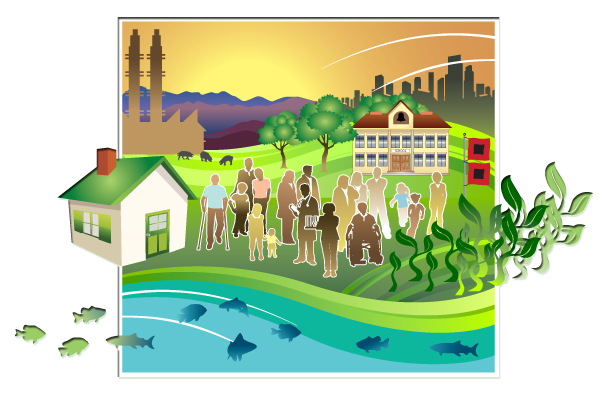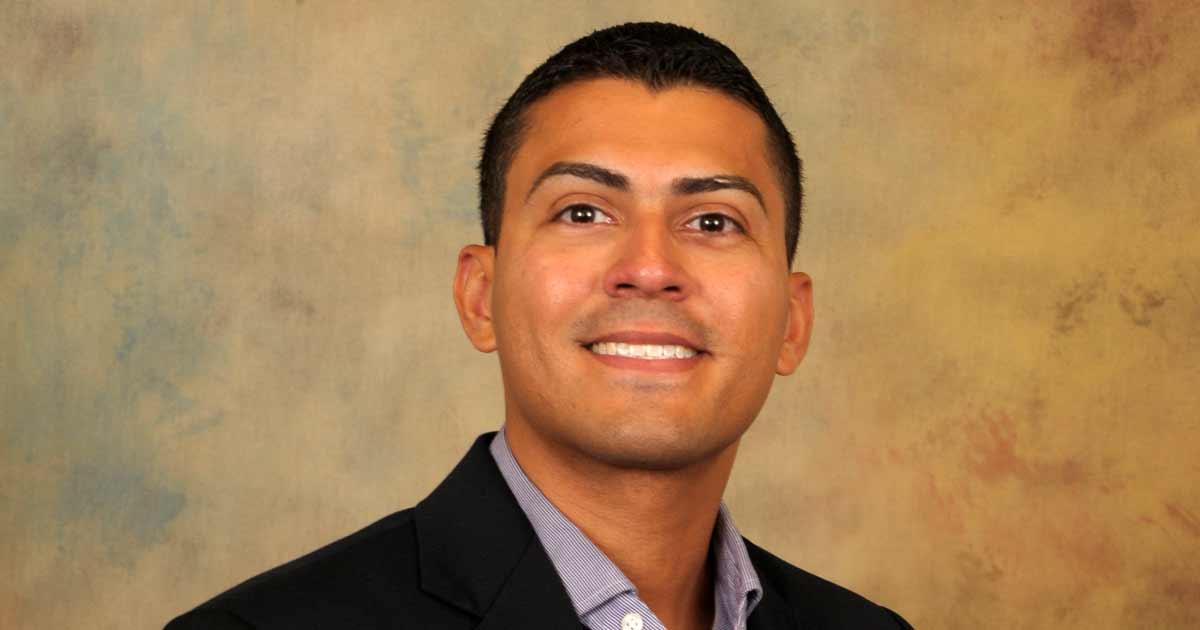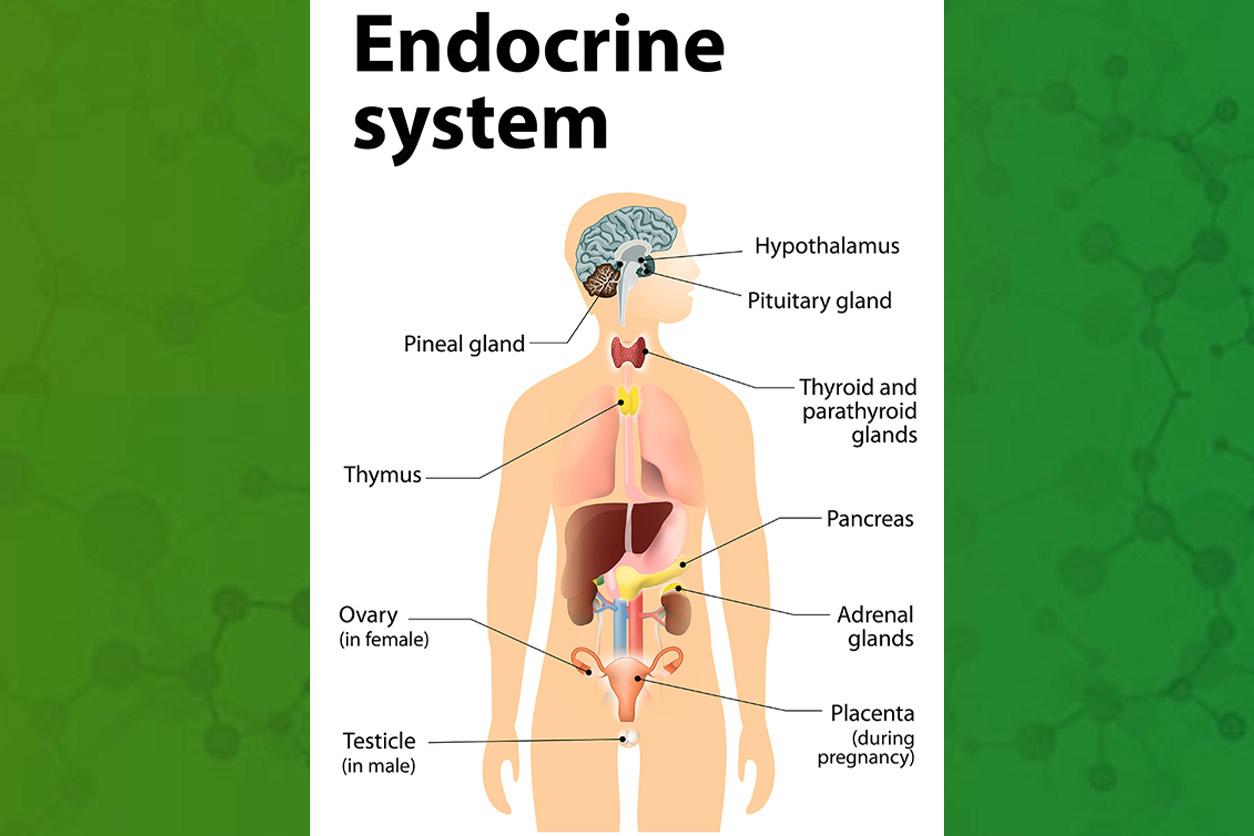Challenges and Opportunities for Community Engaged Research Revealed Through Program Evaluation
Community-engaged research (CEnR) is a strategic component of NIEHS- and other NIH-funded projects, including the NIEHS Environmental Health Sciences Core Centers. CEnR engages community members in the research process in order to conduct research that meets their priorities and translates research results to policy or practice that addresses a community’s challenges.
Members of the University of California, Davis, Environmental Sciences Center sought to understand how well they had incorporated CEnR into research during their first funding cycle. A May 2023 paper describes how the team surveyed and interviewed leadership to determine challenges and opportunities for incorporating CEnR into the center’s work.
The center’s community engagement core (CEC) has used the results to inform strategies to enhance and elevate the role of CEnR. The team determined the center’s organizational dynamics contributed to both challenges in implementing CEnR and opportunities for multi-disciplinary research that would promote CEnR.
Jonathan London, Ph.D., director of the CEC, reflected, “One of the most valuable things other researchers can learn from this case study is that prioritizing and integrating community engagement throughout the organizational structure of the center can ensure that CEnR has practical benefits for communities.”
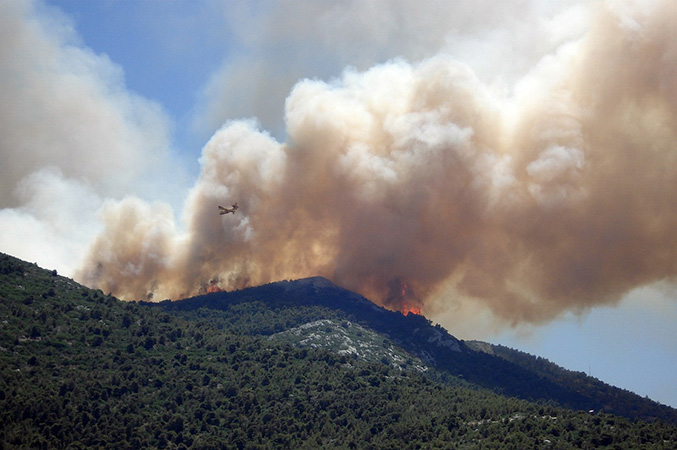
Smoke from a wildfire spreads from a mountain. The UC Davis center funds research related to environmental health concerns from wildfire smoke. (Photo courtesy of Saiho from Pixabay)
Themes From Interviews and Surveys
When the center was formed in 2015, many researchers who joined did not have previous CEnR requirements for their funding. However, to ensure CEnR would be integral, the CEC emphasized evaluation to assess and continuously improve its work. From 2016 to 2019, the research team and several CEC members conducted interviews and focus groups with center leadership, researchers, and CSTAC members. The researchers’ analysis revealed seven themes among the responses. The following are descriptions of some of those themes.
Responses from CEC staff most familiar with CEnR spoke to how CEnR helps democratize knowledge production. This means that community members are part of finding solutions to problems, unlike in traditional research. CSTAC members further emphasized this point by describing how community members are experts.

Traffic on a San Francisco street. The UC Davis center funds research related to environmental health concerns from noise pollution. (Photo courtesy of Ignacio Palés from Pexels)
For example, one respondent stated, “When you connect to communities, […] come with a mindset that they’re also experts. As researchers, you’re gonna go out there and take advantage of that knowledge at the local level because they know what the problems are. They experienced it because they are human test subjects of their own community exposed to all the elements that are there […] in your research projects.”
Responses also indicated that initial drivers for doing CEnR included adherence to funding requirements. To meet these requirements, the center had to build new organizational processes. For example, to implement the center’s Pilot Project Program, program directors changed the review process so that community engagement components counted toward a proposal’s score, increasing its chances of getting funded. Additionally, the center increased Community Stakeholders Advisory Committee (CSTAC) members’ power over decision-making in the CEC after having found the committee’s initial role as advisers did not adequately reflect the CEC’s community-empowerment values.
“Changing organizational processes brought about a lot of successful developments in CEnR in the center,” said London. “Incorporating the CSTAC into more of the center’s activities, in particular, is bringing a stronger community perspective to decisions and research priorities.”
Opportunities for Structural Changes
Overall, the feedback reflected that CEnR should be facilitated by an organizational structure that prioritizes community engagement on the same level as traditional research. Feedback also indicated opportunities for the center to better align its priorities to those of the community, such as by seeking more input from the CSTAC community partners to inform the center’s programs, strategies, and resources.
The team reported back the findings from the interviews and focus groups to center leadership, who used the results to make changes, such as elevating the role of the CSTAC to effectively promote CEnR in the center. The changes helped the center successfully compete for a second round of NIEHS funding with an application that elevated and integrated community engagement throughout the center. Changes include developing a comprehensive set of CSTAC research priorities, providing training for all Pilot grantees in community-based participatory action research, and infusing environmental justice themes into center events.
Over the next few years, the CEC hopes to deepen partnerships between the center’s researchers and community organizations, build researcher and community capacity for community-based participatory action research, and enhance the translation of research to policy and community action.
App Provides On-the-Go Worker Safety Training
The National Clearinghouse for Worker Safety and Health Training, which is funded by NIEHS, and CPWR – The Center for Construction Research and Training, a nonprofit construction safety and health research and training organization, released a new app over the summer. The app provides easily accessible training tools for workers involved in disaster response and cleanup activities and uses the information on the NIEHS Disaster Preparedness and Response webpage. Training cover topics such as protection and safety while responding to earthquakes, wildfires, and oil spills. Instructions on how to access the app can be found on the Worker Training Program Disaster Preparedness and Response Training Tools webpage.
Atlanta Program Provides Hands-On Environmental Public Health Research Experience to High School Students and Teachers
Georgia State University’s Engaging Multidisciplinary Professional Opportunities for Women in Environmental Research (EMPOWER) program, supported by a NIEHS grant and university funding, provides high school students and teachers with hands-on learning opportunities about environmental health research. The program partners with underserved schools in the Atlanta area and aims to close racial, ethnic, and gender gaps in the environmental science workforce. During the summer camp, participants learned field and laboratory techniques, such as water quality sampling, and conducted research projects on topics such as neighborhood air quality and the effects of the Canadian wildfires on Atlanta’s air quality. Teacher participants received additional professional development training during which they learned how to integrate more hands-on learning experiences into their classroom lessons. The program completed its fourth year in the summer.
Close Community Relationships May Enhance Community Mobilization in Environmental Justice Efforts
A NIEHS-funded research team has been studying air pollution in Colfax, Louisiana, at the request of residents who were concerned about the health effects of open burning at a hazardous waste thermal treatment facility. Prior to the team’s involvement, residents had been excluded from decision making about the facility for years, and the research team was interested in determining what led the community to mobilize against the thermal treatment facility. The researchers conducted oral history interviews with community members, studied social and organizational networks within the Colfax community, and examined public complaints about the facility filed with the Louisiana Department of Environmental Quality. They found there was a concerted effort among community members to educate themselves about the facility, organize a response through neighbor-to-neighbor contact, and act by submitting formal complaints and participating in public hearings.
NIEHS-Funded Teams Highlight How to Better Engage Community in Research
Two NIEHS-funded research teams have published articles on their insights into better community engagement.
The first team, from the University of California, San Diego, examined how the quality of engagement with Community Advisory Boards (CAB) is supported among different projects. By studying CAB engagement in two different research projects focused on equitable COVID-19 testing and vaccination, the team assessed multiple aspects of CAB member engagement during CAB meetings, such as time each member spent speaking. CAB members also filled out a survey after each CAB meeting to provide the research team with information on the quality of their engagement. The team analyzed data from 15 CAB meetings and developed recommendations from these findings. For example, the team suggests ongoing trainings, including debriefings, to strengthen meaningful community engagement.
The second team, from the University of California, Davis, investigated the local effects of waste disposal of products from fossil fuel extraction. They conducted interviews with residents from a rural community in California near a hazardous waste landfill that accepts waste from fossil fuel production. They applied a novel analysis approach to the interview data that considers cumulative exposures, structural arrangements of power, institutional distrust, and community responses of resilience. Their analysis suggests energy disposal is often understudied and is a multigenerational issue that rural communities continue to face. This approach perceives hidden and distant injustices and provides a framework to look at energy waste disposal across intersections of social factors (race and income, for example), space (rural locations), and time (multiple generations).
NIH Requests Information From Public on Environmental Justice Research Gaps and Opportunities
The NIH Environmental Justice Working Group, which is led by Trevor Archer, Ph.D., Deputy Director of NIEHS, is seeking feedback from the public about how NIH can support research and capacity-building related to environmental justice. The request for information also supports Executive Order 14096 on Revitalizing Our Nation’s Commitment to Environmental Justice for All, which was released in April 2023 and calls for a whole-of-government approach in working toward environmental justice. Through the request for information, NIH is seeking comments from communities with environmental justice concerns, scientific researchers, community-based organizations, consumer advocacy groups, service agencies, and the public to identify gaps and opportunities in areas such as environmental justice research and action, scientific infrastructure, community partnerships to address environmental injustices, and science communication and dissemination of research findings. Responses are due December 15. Read the notice in its entirety.
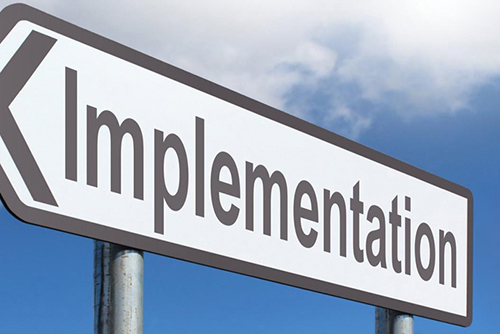
PEPH Environmental Health Chat Podcast Series
Using Implementation Science to Move Environmental Health Discoveries into the Real World
PEPH Environmental Health Chat Podcast Series
Using Implementation Science to Move Environmental Health Discoveries into the Real World
Determining how to close the gap between new scientific discoveries and when they get translated into real-world benefits is one of the goals of implementation science. In our podcast, Using Implementation Science to Move Environmental Health Discoveries into the Real World, Lindsey Ann Martin, Ph.D., discusses how environmental health scientists can enhance the public health impact of their research and effectively address environmental health disparities. Martin is a health science administrator in the NIEHS Division of Extramural Research and Training.
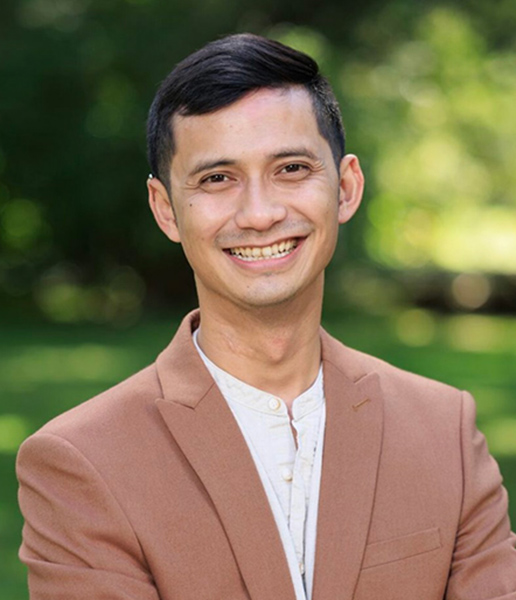
PEPH Grantee Highlight
Max Aung, Ph.D.
Max Aung, Ph.D., an assistant professor at the University of Southern California, researches maternal and child health as a member of both the NIEHS-funded Environmental Health Sciences Center and the MADRES Center for Environmental Health Disparities, which is funded by several NIH institutes. He became interested in advancing health equity as a participant in a public health summer program while studying molecular biology as an undergraduate. Aung is now interested in studying hazardous exposures on maternal health and infant development, and his work is motivated by his desire to prevent further environmental health disparities by addressing and mitigating early life exposures. His projects have investigated the associations between air pollution and childhood depressive symptoms among children whose parents are immigrants, how exposure to per- and polyfluoroalkyl substances (PFAS) during pregnancy may affect maternal mental health, and the relationship between PFAS exposure and neurobehavioral outcomes in underrepresented minorities.
Funding Opportunites
Ruth L. Kirschstein National Research Service Award (NRSA) Individual Predoctoral Fellowship (Parent F31)
The Ruth L. Kirschstein NRSA Individual Predoctoral Fellowship (Parent F31) award enables promising predoctoral students to obtain individualized, mentored research training from outstanding faculty sponsors while conducting dissertation research in scientific health-related fields relevant to the missions of participating NIH Institutes and Centers. The proposed mentored research training must reflect the candidate’s dissertation research project and is expected to clearly enhance the individual’s potential to develop into a productive, independent research scientist. Funding opportunities are also open for the Ruth L. Kirschstein NRSA Individual Fellowship for Students at Institutions with NIH-Funded Institutional Predoctoral Dual-Degree Training Programs (Parent F30), that supports promising predoctoral students who are matriculated in a combined M.D./Ph.D. or other dual-doctoral degree training program, and who intend careers as physician/clinician-scientists, and the Ruth L. Kirschstein NRSA Individual Senior Fellowship (Parent F33), that supports experienced scientists who wish to make major changes in the direction of their research careers or who wish to broaden their scientific background by acquiring new research capabilities as independent investigators in research fields relevant to the missions of participating NIH Institutes and Centers.
Deadlines: December 8, 2023; April 8, 2024
PHS 2023-2 Omnibus Solicitation of the NIH and CDC for Small Business Innovation Research Grant Applications (Parent SBIR [R43/R44] Clinical Trial Required)
Invites eligible United States small business concerns to submit Small Business Innovation Research (SBIR) Phase I, Phase II, Direct to Phase II (NIH only), Fast-Track (NIH only), and Phase IIB (NIH only) grant applications. The PHS 2023 -2 SBIR/STTR Program Descriptions and Research Topics for NIH, CDC, and FDA represent scientific program areas that may be of interest to applicant small businesses in the development of projects that have potential for commercialization. Small business concerns that have the research capabilities and technological expertise to contribute to the research and development mission(s) of the NIH and CDC awarding components identified in this funding opportunity are encouraged to submit SBIR grant applications in these areas. A related SBIR funding opportunity is available without a clinical trial requirement: PHS 2023-2 Omnibus Solicitation of the NIH, CDC and FDA for Small Business Innovation Research Grant Applications (Parent SBIR [R43/R44] Clinical Trial Not Allowed). Related funding opportunities are available for small business applicants interested in submitting small business technology transfer (STTR) applications: PHS 2023-2 Omnibus Solicitation of the NIH for Small Business Technology Transfer Grant Applications (Parent STTR [R41/R42] Clinical Trial Not Allowed) and PHS 2023-2 Omnibus Solicitation of the NIH for Small Business Technology Transfer Grant Applications (Parent STTR [R41/R42] Clinical Trial Required).
Deadlines: September 5, 2023; January 5, 2024; April 5, 2024
SBIR/STTR Commercialization Readiness Pilot (CRP) Program Technical Assistance and Late Stage Development (SB1, Clinical Trial Not Allowed)
Encourages applications from small business concerns to the newly re-authorized Commercialization Readiness Pilot (CRP) program. The funding opportunity aims to facilitate the transition of previously or currently funded Small Business Innovation Research (SBIR) and Small Business Technology Transfer (STTR) Phase II and Phase IIB projects to the commercialization stage by providing additional support for technical assistance and later stage research and development not typically supported through Phase II or Phase IIB grants or contracts. This may include independent replication of key studies, Investigational New Drug-enabling studies, clinical studies, manufacturing costs, regulatory assistance, or a combination of services. Although a significant amount of the work in a CRP award may be subcontracted to other institutions, the small business concern is expected to maintain oversight and management of research and development throughout the award.
Deadlines: September 5, 2023; January 5, 2024; April 5, 2024
HHS Environmental Justice Community Innovator Challenge
The Office of the Assistant Secretary for Health and the Office of Minority Health are seeking community-led strategies and tools to address health disparities in communities disproportionately impacted by environmental risks and hazards including those related to climate change, and the cumulative impacts of other stressors. This Challenge seeks to support to community-based and Tribal organizations in areas including, but not limited to: development or implementation community-driven strategies to address health disparities; effective partnerships between community-based or Tribal organizations and other civil organizations, such as faith-based, healthcare and public health and educational organizations, to address environmental and climate change-related hazards and support community resilience; and innovative approaches to building capacity in community-based or Tribal organizations on project planning, needs assessment, budgeting, engagement with community members, and grant application writing, to address environmental and climate change-related hazards as drivers of health disparities. The competition has two phases. All eligible submissions will be evaluated, and separate prizes will be awarded for each of the two phases. The first phase is currently open for submissions. There will be a general informational webinar on October 10, and an information webinar for Tribal organizations on October 12.
Deadline: January 30, 2024
Research Supplements to Promote Diversity in Health-Related Research (Admin Supp — Clinical Trial Not Allowed)
Supports administrative supplements to recruit and support high school, undergraduate and graduate/clinical students, postbaccalaureate and post-Master’s individuals, postdoctoral researchers (including health professionals), and eligible investigators. NIH encourages institutions to diversify their student, postdoctoral researchers, and faculty populations to enhance the participation of individuals from groups that are underrepresented in the biomedical, clinical, behavioral, and social sciences, such as individuals from racial and ethnic groups that have been underrepresented in the sciences; individuals with disabilities; individuals from disadvantaged backgrounds; and women from disadvantaged backgrounds. See the NIEHS workforce diversity supplements webpage for more information.
Deadlines: October 2, 2023; December 1, 2023; February 1, 2024
Research With Activities Related to Diversity (ReWARD) (R01 Clinical Trial Optional)
ReWARD funding will support research in areas related to the programmatic interests of NIEHS and ongoing diversity, equity, inclusion, and accessibility activities focused on enhancing diversity in the biomedical research enterprise within the U.S. and territories. This funding is intended for individuals with no current NIH research project grant funding at the time of the award. This announcement requires a Plan for Enhancing Diverse Perspectives as part of the application.
Deadlines: June 5, 2023; October 5, 2023; February 5, 2024
Notice of Special Interest: Administrative Supplements to Recognize Excellence in Diversity, Equity, Inclusion, and Accessibility Mentorship
Supports administrative supplements to existing NIH awards to support scientists who have demonstrated compelling commitments and contributions to mentorship and enhancing diversity, equity, inclusion, and accessibility (DEIA) in the biomedical sciences. This Notice of Special Interest (NOSI) encourages program directors and principal investigators to promote DEIA and mentorship broadly and as such differs from a Diversity Supplement (PA-23-189). Diversity supplements are designed to support research experiences for individuals from diverse backgrounds, including those from underrepresented groups, through the career continuum from high school to the faculty level. In contrast, this NOSI focuses on mentors who have dedicated their time and effort and have made significant contributions, based on evaluation data and publications, to DEIA. Mentors are encouraged to apply for an administrative supplement to further their personal research and/or mentoring activities.
Deadline: February 16, 2024
Intervention Research to Improve Native American Health (R01 Clinical Trial Optional)
Supports research on interventions to improve health in Native American (NA) populations. This includes 1) etiologic research, where there is a significant gap in knowledge, that will directly inform intervention development or adaptations, 2) research that develops, adapts, or tests the efficacy or effectiveness of health promotion and disease prevention interventions, 3) research that tests culturally informed treatment or recovery interventions and 4) where a sufficient body of knowledge on intervention efficacy exists, research on dissemination and implementation that develops and tests strategies to overcome barriers to the adoption, integration, scale-up, and sustainability of effective interventions. Through this initiative, intervention and related research is sought to build upon community knowledge, resources, and resilience to test science-based, culturally appropriate solutions to reduce morbidity and mortality through identification and remediation of precursors to diseases and disorders and through culturally informed treatment.
Deadline: May 17, 2021; May 17, 2022; May 17, 2023
Letter of Intent: Due 30 days prior to the application due date
Upcoming PEPH-related Events



